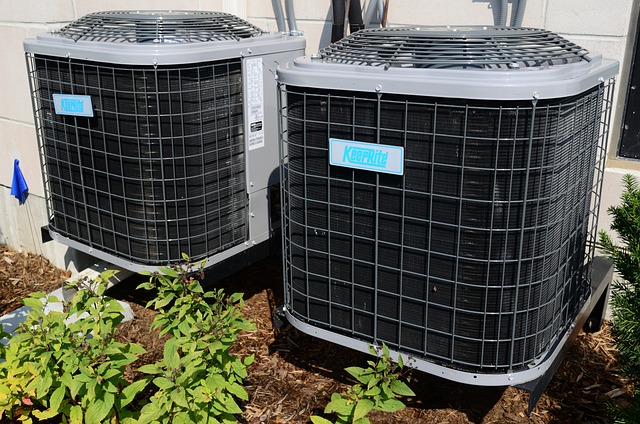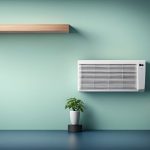Regarding comfort in our homes, few things are as essential as a reliable air conditioning system. Whether upgrading your existing system or installing a new one, making the right choice is crucial. The wrong decision can lead to discomfort, inefficiency, and higher energy bills. To help you navigate this critical decision, we’ve compiled the ultimate guide to choosing the right air conditioning system for your needs.
Understanding Your Cooling Needs
1. Evaluating Your Specific Cooling Requirements
Before you start browsing through different air conditioning options, it’s essential to understand your unique cooling requirements. Several factors should influence your decision:
a. Climate Considerations: The climate in your region plays a significant role in determining the type and size of the air conditioning system you need. In hotter and more humid areas, you might require a more robust system.
b. Room Sizes and Layout: Consider the size and layout of the rooms you want to cool. Larger spaces or open-concept areas may need a different type of AC system than smaller, closed-off rooms.
c. Insulation and Home Design: A well-insulated home retains cool air better, reducing the load on your AC system. Evaluate your home’s insulation and design to determine how efficiently it can maintain a comfortable temperature.
2. Identifying Your Budget Constraints
Budget is a critical factor in your decision-making process. Air conditioning systems come in a wide range of prices, and while it’s tempting to opt for the most advanced system, it may not be the most practical choice. Set a budget that aligns with your financial capacity and long-term expectations.
3. Determining Your Eco-Friendly Preferences
If environmental concerns are important to you, consider eco-friendly options. Some air conditioning systems are designed to be more energy-efficient and have a smaller carbon footprint. These systems may cost more upfront but can lead to significant energy savings and a reduced environmental impact in the long run.
Types of Air Conditioning Systems
Now that you have a better understanding of your cooling needs, let’s explore the different types of air conditioning systems available:
1. Central Air Conditioning
How Central AC Works: Central air conditioning systems cool the entire home by distributing cool air through a network of ducts. They are controlled by a central thermostat and are the most common type of cooling system in the United States.
Pros and Cons: Central AC provides consistent and even cooling throughout the home. However, installation can be costly, especially if your home doesn’t have existing ductwork.
2. Ductless Mini-Split Systems
Advantages and Disadvantages: Mini-split systems offer flexibility and energy efficiency. They don’t require ducts, making them suitable for older homes or room additions. However, the upfront cost can be higher than traditional central AC.
3. Window and Portable AC Units
When to Consider These Options: Window and portable units are ideal for cooling single rooms or small spaces. They are budget-friendly and easy to install but may not be suitable for cooling an entire house.
4. Heat Pumps
Dual-Functionality for Heating and Cooling: Heat pumps can both heat and cool your home. They are highly energy-efficient but may not be ideal for extremely cold climates.
Energy Efficiency and SEER Ratings
1. Understanding SEER (Seasonal Energy Efficiency Ratio)
SEER is a crucial factor to consider when choosing an air conditioning system. It measures the efficiency of the unit over an entire cooling season. The higher the SEER rating, the more energy-efficient the system is.
2. Importance of Choosing a High SEER-Rated System
Investing in a high SEER-rated system might cost more upfront, but it can result in substantial long-term savings on your energy bills. An efficient system also reduces your carbon footprint.
3. Balancing Energy Efficiency with Initial Costs
While it’s essential to consider energy efficiency, remember to balance it with your budget. Sometimes, a moderately efficient system that fits your budget is a better choice than stretching your finances for a top-of-the-line model.
Sizing Your Air Conditioning System
1. The Significance of Proper Sizing
Proper sizing is critical for an air conditioning system. An undersized unit will struggle to cool your home, while an oversized one will short-cycle, leading to inefficiency and increased wear and tear.
2. Factors Influencing Sizing Decisions
Several factors influence the sizing of your AC system:
a. Square Footage: The size of your home directly impacts the size of the AC system you need. Larger homes require more cooling capacity.
b. Insulation and Windows: A well-insulated home with energy-efficient windows may require a smaller AC system.
c. Climate Zone: The climate in your area affects the cooling load on your system. Hotter climates typically require more cooling capacity.
3. The Role of HVAC Professionals in Sizing Calculations
To ensure your AC system is correctly sized, it’s best to consult with HVAC professionals. They have the expertise to perform load calculations and recommend the right size for your home.
Features and Add-Ons
1. Smart Thermostats and Remote Control Options
Smart thermostats allow you to control your AC system remotely through a smartphone app. They can also learn your preferences and optimize cooling efficiency.
2. Zoning Systems for Customized Comfort
Zoning systems divide your home into different zones, each with its thermostat. This allows you to customize the temperature in different areas, improving comfort and energy efficiency.
3. Air Quality Enhancements
Consider air quality add-ons like air purifiers and dehumidifiers to enhance your indoor air quality. These can be especially beneficial for those with allergies or respiratory issues.
4. Noise Considerations
If noise is a concern, look for AC systems designed for quieter operation. Noise levels can vary significantly between different models.
Maintenance and Longevity
1. The Importance of Regular Maintenance
Regular maintenance is crucial to keep your AC system running efficiently and prolong its lifespan. This includes tasks like changing filters, cleaning coils, and checking for refrigerant leaks.
2. DIY vs. Professional Maintenance
While some maintenance tasks can be done by homeowners, it’s essential to schedule annual professional maintenance to catch and address potential issues early.
3. Tips for Extending Your AC System’s Lifespan
Simple practices like keeping the outdoor unit clean, ensuring proper insulation, and promptly addressing any repairs can significantly extend the life of your AC system.
Installation and Hiring Professionals
1. Finding Reputable HVAC Contractors
When it’s time to install your new AC system, do your research to find reputable HVAC contractors in your area. Look for recommendations and read reviews to ensure you choose a reliable installer.
2. Getting Multiple Quotes and Comparing Them
Obtain quotes from multiple contractors and compare them. Consider not only the price but also the contractor’s reputation and the included warranty.
3. Questions to Ask Potential Installers
Before hiring an HVAC contractor, ask them about their experience, certifications, and references. It’s also essential to discuss the installation timeline and any potential issues they foresee.
Conclusion
Choosing the right Helendale air conditioning contractor and system for your home is a significant decision that impacts your comfort, energy efficiency, and budget. By understanding your cooling needs, exploring different system types, considering energy efficiency, sizing your system correctly, and maintaining it well, you can make an informed choice that ensures a comfortable and efficient home environment for years to come.

